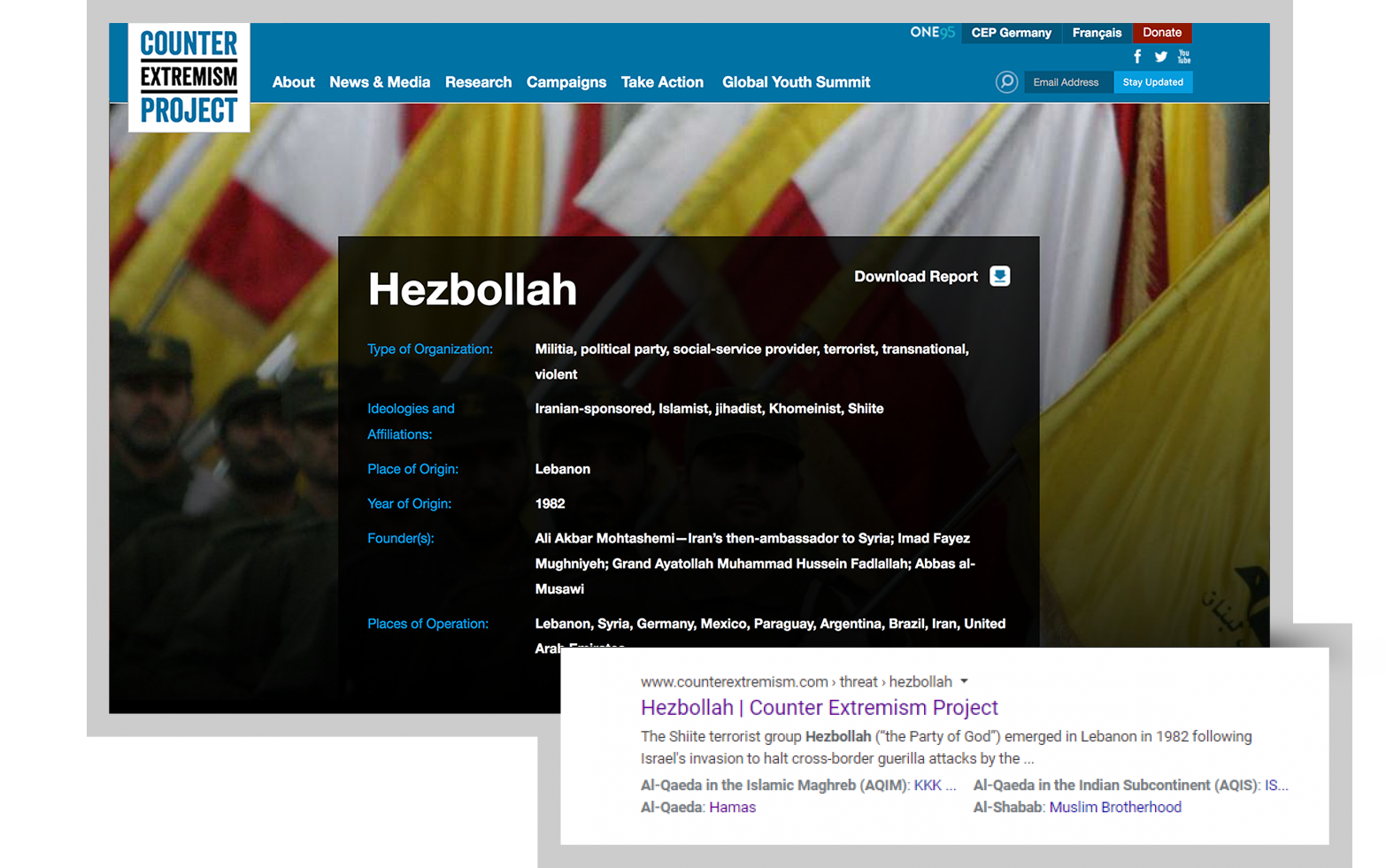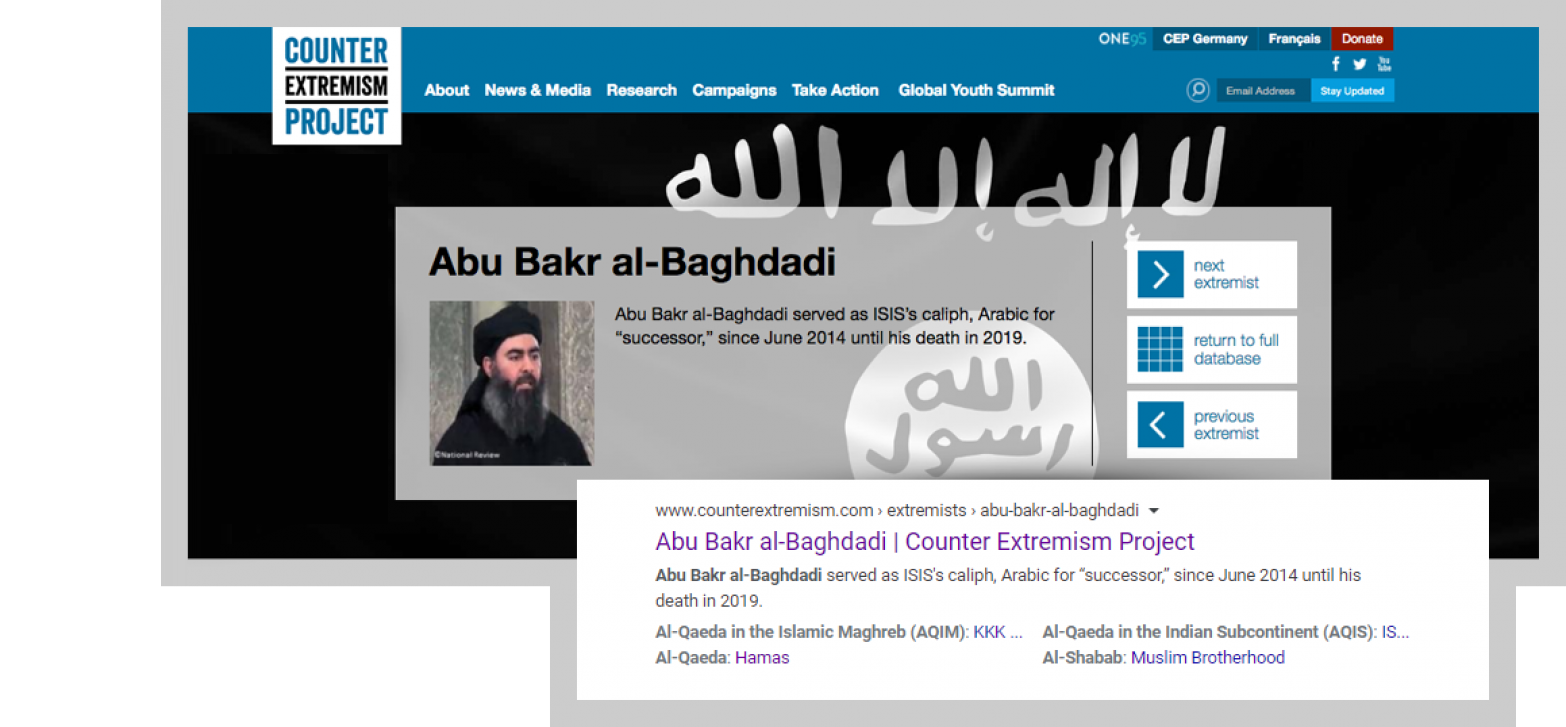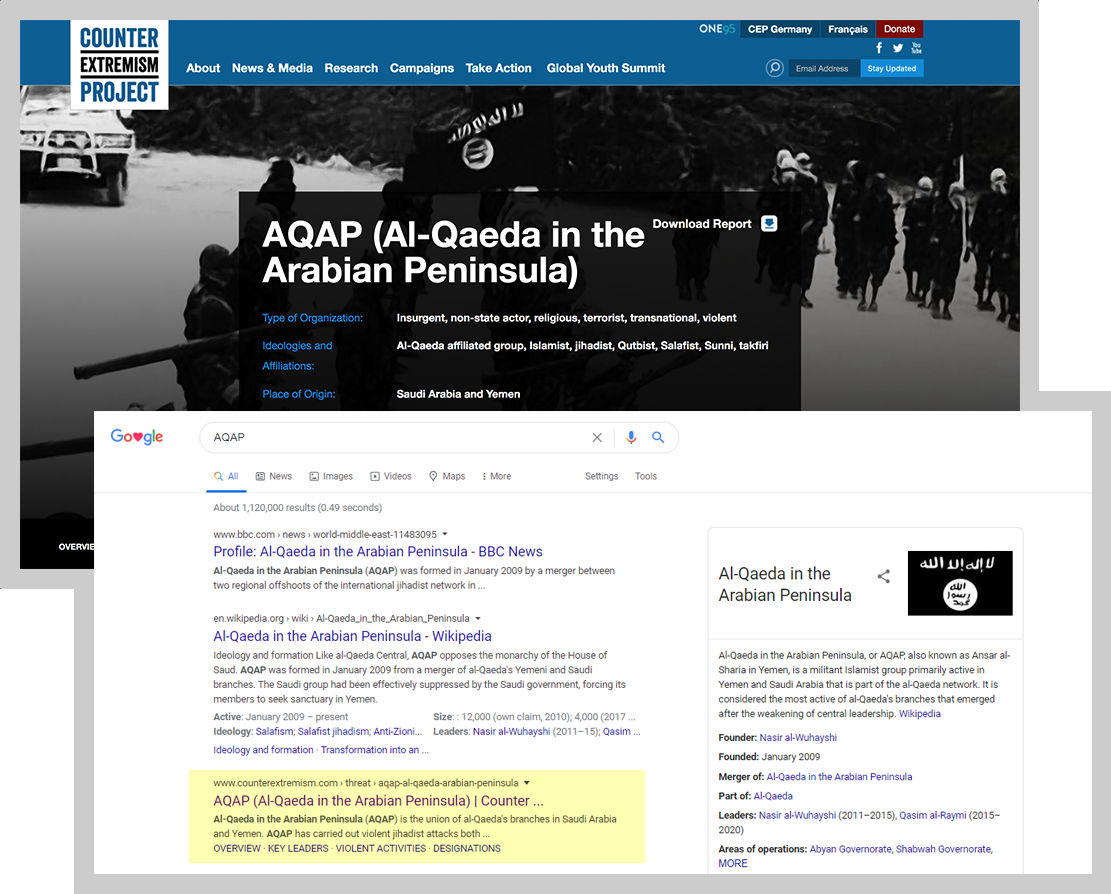Counter Extremism Project
Search Engine Optimization

The Counter Extremism Project (CEP) is a nonprofit policy think tank working to disrupt extremist recruitment and financial systems. They create best-in-class research databases on extremist groups and their leaders. The CEP website features hundreds of research reports and each one took their team hours to prepare. It’s important to CEP that this hard work is recognized and their content is read.
We have an ongoing relationship with CEP. And each week we recommend and implement one improvement – either a technical or a content optimization. Examples include changing a report name from an H2 to an H1, adding a glossary that defines commonly used terms in the space, and updating report titles and URLs based on keyword search volume.
All of this has resulted in a 252% increase in sessions from search in 4 years.
Keyword Research
Brick Factory worked with CEP to identify dozens of priority reports – reports that are either central to CEP’s mission or where CEP expected to see related news coverage in the coming months. From there, Brick Factory read through the content and pulled several possible keywords for each report.
Some of these keywords were obvious. For example, “Hezbollah” is an appropriate keyword for a report on the organization. However, for many keywords, multiple spellings are used. Hezbollah can also be spelled “Hizbollah.” Brick Factory explored all possible spellings and reviewed the average search traffic for each. The spelling with the highest search volume became our final keyword.

Global Improvements
Once we had a list of keywords, we wanted to find changes that could have a big impact without a lot of investment. We started by looking for small, structural changes that would affect many pages.
One section of CEP’s site is dedicated to profiles on different extremist leaders. And several of these leaders’ names were on our list of priority keywords. After reviewing a few of the profiles, we found that they had one thing in common: the individuals’ names were coded as second headings. We knew that Google’s algorithm is looking for keywords to be included in a page’s first heading, so we adjusted how the names were coded. This small adjustment improved the performance of the profile pages across the board.

Low Impact, High Reward
We then looked for technical and content improvements we could make to individual reports. To start, we looked for tactics that required little work from CEP’s team while producing high returns.
The most common change we made was to the report’s title. Because of the way the website was built, changing a report’s title to include a keyword will include the keyword in:
- The page’s URL
- The title tags Google uses to understand what the page is about
- The first heading on the page
For example, one report was about the group Al-Qaeda in the Arabian Peninsula. We found that more people were searching for the abbreviated name – AQAP. So we updated the report name to be “AQAP (Al-Qaeda in the Arabian Peninsula)”.
We also made a number of other small changes like adding the keyword to the meta descriptions on the page, to subheadings, to image alt tags, and more.

Specific Content Optimizations
One specific example of a successful improvement is the White Supremacy Groups Report. Initially, this report, then titled “Far Right Groups”, was a one-page resource with intro text and short summaries of the different groups. Brick Factory recommended:
- Breaking the report into multiple pages so that each group can have its own dedicated page. This involved developing additional content for each group.
- Changing the report title from “Far Right Groups” to the far more searched, “White Supremacy Groups”.
- Optimizing the title tags, headings, URLs, and meta descriptions for the main page as well as the group profiles.
These changes resulted in:
- The main report page ranking #5 in Google for “White Supremacy Groups”.
- Several profiles of the groups in the report showing up on the first page of search results. For example, Combat 18 ranks #4 when you search for the group.
- Between Q1 2020 and Q1 2021, a 194% increase in search traffic to the report. (From 6,619 visits to 19,459.)